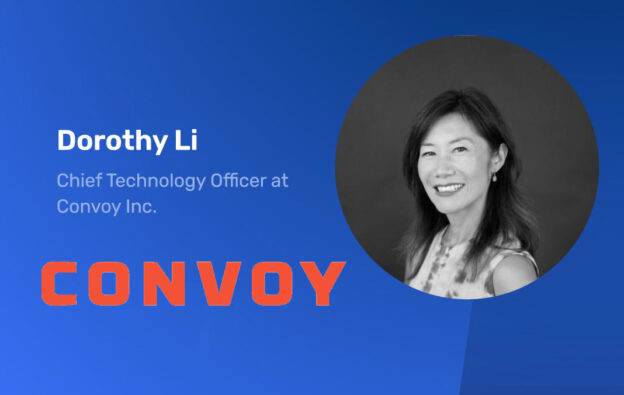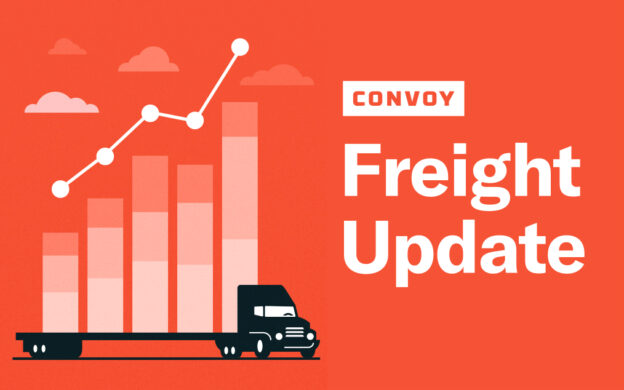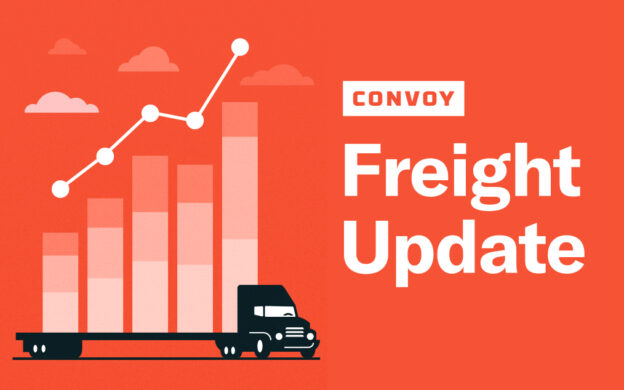Supply Chain Innovation in the COVID-19 Crisis: Interview with Dr. Anne Goodchild of the UW
Freight Research • Published on April 9, 2020
With 75% of US residents self-isolating due to COVID-19, businesses across a range of industries are being forced to adapt their supply chains. Delivery companies are increasing capacity to meet unprecedented demand. Traditional businesses are shifting to delivery models to service their at-home customers. Consumers are changing how they receive and handle packages to reduce human-to-human contact.
In the latest of our COVID-19 video series, we’re joined by special guest Dr. Anne Goodchild of the University of Washington. Dr. Goodchild is Founding Director of the Supply Chain Transportation & Logistics Center. Dr. Goodchild’s team has spent years researching the final 50 feet of freight delivery in urban environments, an area that’s seen innovation from both consumers and businesses in the COVID-19 crisis.
In our interview with Dr. Goodchild, we cover the following:
- How the freight industry’s resilient culture and the decades of investment in our supply chains have equipped supply chains to address this crisis
- Why the COVID-19 pandemic will accelerate the adoption of technology within the freight industry
- How both businesses and consumers have adapted to the crisis through innovation
Webinar Invitation: Join Convoy for a panel discussion on COVID-19 and the freight industry, hosted by Logistics Management. The free webinar airs on April 16th, and is available on demand to all registrants. RSVP today: https://event.on24.com/wcc/r/2241270/46B90ACB37BC00D00B1DB73362FC735F?partnerref=convoyblog

You can read the a transcript of our conversation below:
Ari Bixhorn (Convoy): Dr. Goodchild, you’ve been a leading researcher in freight and its impact on urban environments. This is something that’s highly relevant in our current situation given that coronavirus has hit our cities harder than rural areas. Can you tell our audience a bit about what you’re seeing from COVID-19?
Anne Goodchild (UW): My main, overall impression is one of just admiration with the supply chain and logistics fields, at how resilient they’ve been in terms of continuing to do their business and get us all the things that we need in the face of this disruption. And in order to do that, they’ve had to be really adaptable and innovative, which actually is just kind of a testament to their culture. I would say that the supply chain and logistics fields have always been people that just got things done, took in the day’s or the week’s or the season’s challenges and did what they needed to do. But it’s really been tested now and I think it’s really remarkable.
Ari Bixhorn: I understand that your work has focused on the final 50 feet of delivery. How has coronavirus affected that?
Anne Goodchild: We’ve been really studying in immense detail the final 50 feet for the last four years. One of the things that drew me to the last mile and urban freight was the interplay between consumer behavior, so things that we used to call shopping trips, and supply chains or freight transportation. And often we think of those things as really separate. And one of the things that was interesting to me about online shopping and home delivery was that it really brings those two things together. Instead of me going to the store, goods are actually coming to my house and a truck is showing up in my neighborhood. And I think it’s a way for us to really show how freight and trucks and goods are really a part of their life, and something that they really need.
But also as we can see from living our own lives, this has really disrupted our day to day patterns of where we eat and how we buy stuff and whether or not we use delivery services. And so there’s really been pressure on that final 50 feet to move with us as we change the way we live day to day.
Ari Bixhorn: As we look at one of the impacts of COVID-19, we’ve seen a sort of forced adoption of additional technology. We’re doing a Zoom call right now. All of our interactions are happening over Zoom or similar web conferencing tools. What sort of an impact do you think that COVID-19 will have on the adoption of technology within the freight industry?
Anne Goodchild: I think it will accelerate adoption. I think the supply chain world has been a leader globally in terms of adding technology, sensors, information systems, management systems to the movement of goods. And the reason that we’ve been able to move to online shopping and home delivery is in a large part because of that decades of investment and innovation on the supply chain side.
But I think the final 50 feet, or the last mile and this interaction with consumers is less well-developed. You know, there’s certain companies who’ve really invested that and do that very well. But there’s a lot of complexities still, and as a consumer, you interact with a lot of different platforms. These circumstances have been a forcing function, particularly on the last mile and the consumer piece, and for populations of people that weren’t adopting those technologies. We will just see an acceleration and if there’s been a curve, we’re going to see a big jump in that curve because of the coronavirus.
Ari Bixhorn: As you look out ahead for your own areas of research, are there any focus areas or new potential areas that you might like to research based on what you’ve been seeing with the current crisis?
Anne Goodchild: I think we’ve seen remarkable amounts of innovation in this last mile so quickly. Right? New companies are propping up and doing delivery. It’s amazing the speed at which delivery firms have added capacity in the last two weeks. Amazing! And people being really innovative about how they take their boxes. Do they touch them right away? Do they put them in the garage? And really trying new things.
I think it’s really remarkable just how much interaction there is between our day to day lives and freight. And I hope to explore that a bit more, to look at how quickly people innovated, how quickly they participated differently in the supply chain. And I hope that that innovation sticks around because it’s often in times of real pressure and crisis that people do really innovative things and can solve problems or see ways of solving problems that we’ve been hemming and hawing with for a long time.
I’m looking forward to not being in the middle of a crisis and not just trying to feel like, “We need to get through this.” But being past it and being able to look back and say, “What did we do and how can we continue to do the things that worked?” I’m looking forward to trying to describe some of what happened and share that and try to quantify and write that down before the opportunity is gone.
Ari Bixhorn: Yeah, it’s been interesting to see. I think most people don’t consider themselves part of the supply chain, but everything that we’ve seen in the last couple of weeks has forced us all to realize the critical role that we do play. And so I’ll be very interested to see how your research evolves over the months and years ahead based on that.
Anne Goodchild: Yeah, I agree.
Ari Bixhorn: Well, Dr. Goodchild, on behalf of Convoy and all of our viewers, I wanted to thank you for joining us and sharing your insights. I really enjoyed our conversation. I hope we get the opportunity to speak again.
Anne Goodchild: No, thank you.
Ari Bixhorn: And for all of you tuning in, thanks for watching today. We will continue to provide regular updates on coronavirus and the freight industry. Subscribe to Convoy’s blog to stay informed. See you next time.


